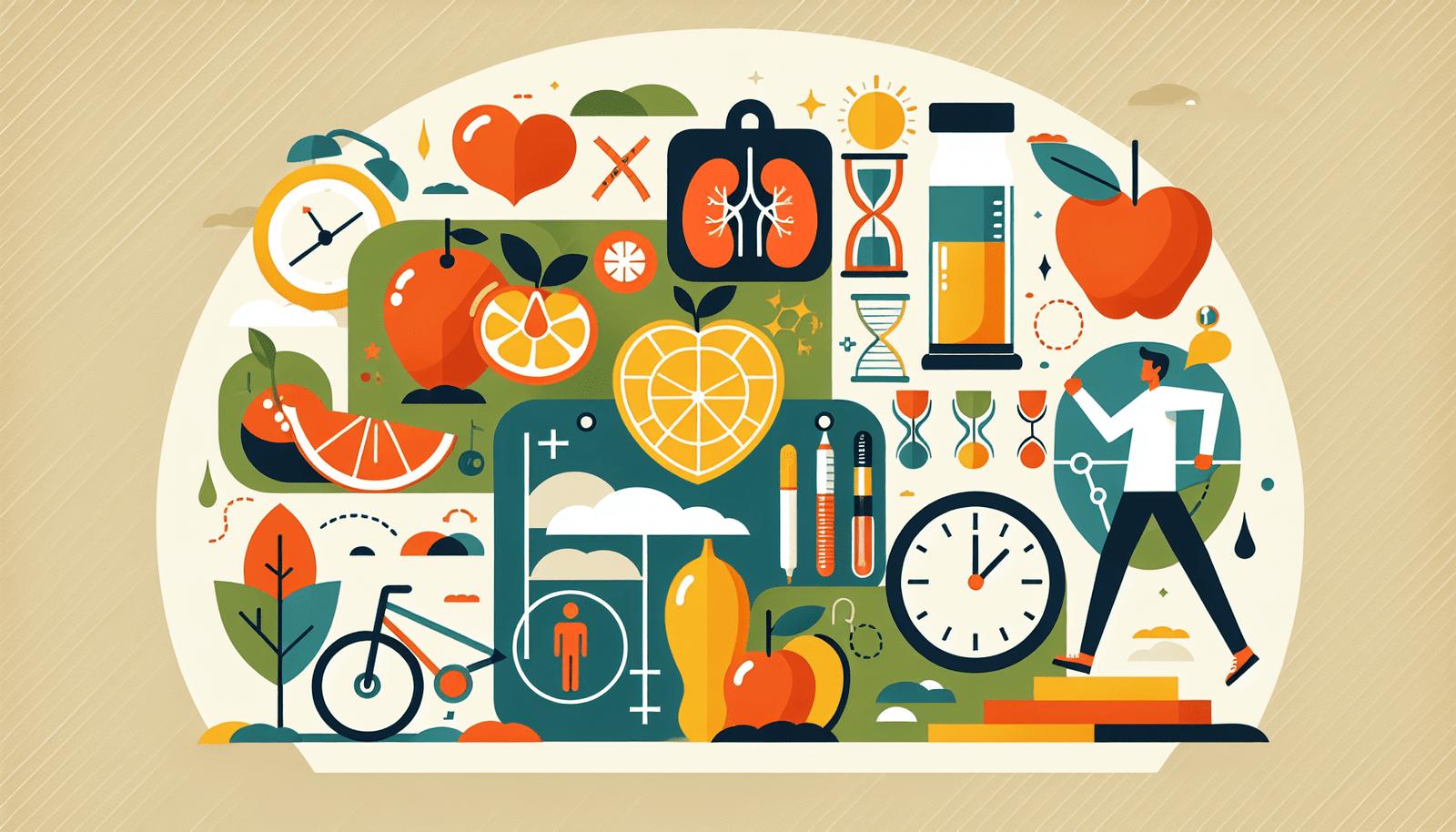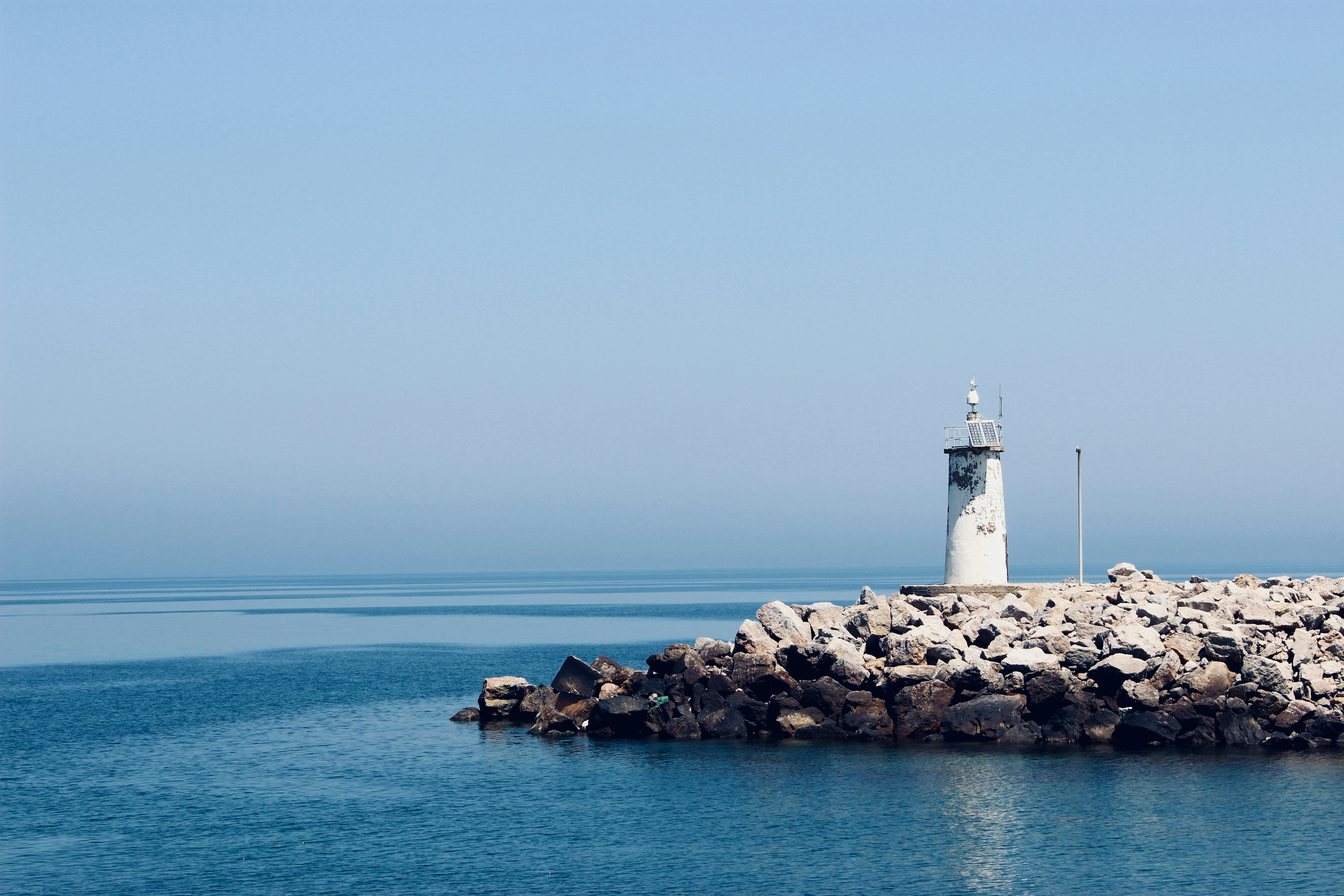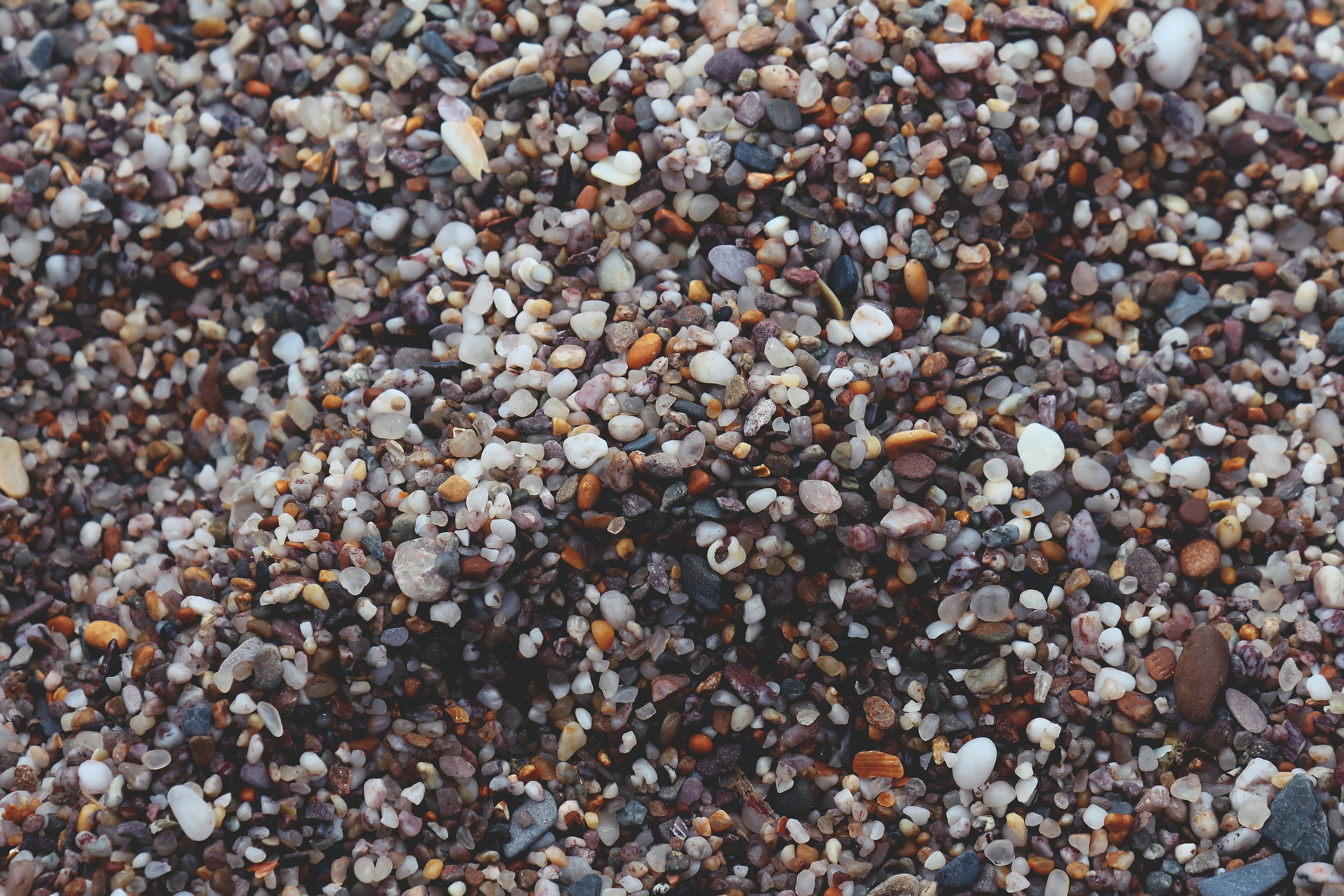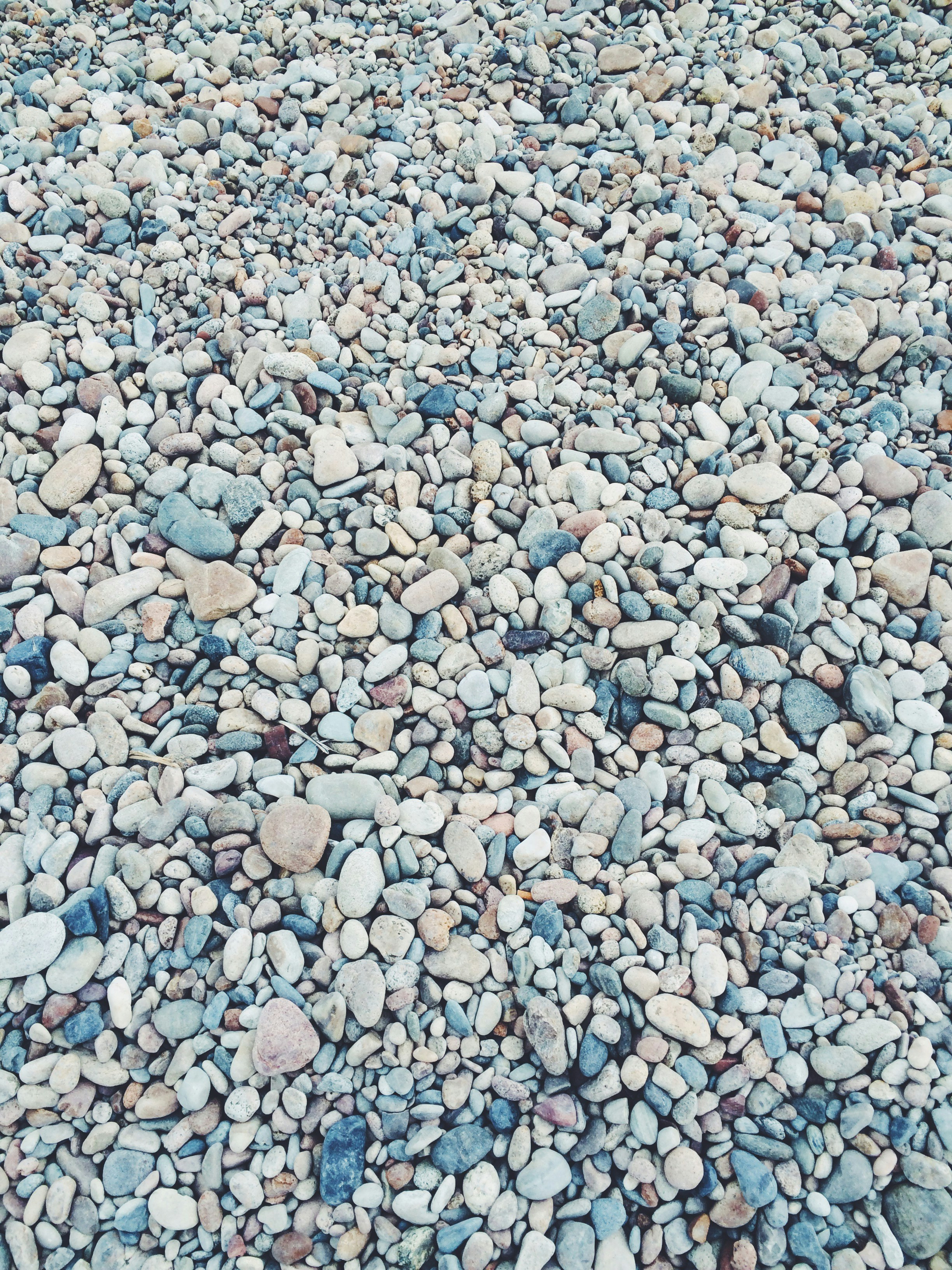So you’ve been hit with the dreaded kidney stones and you’re determined to never experience that pain again. Well, lucky for you, there are some simple lifestyle changes you can make to significantly reduce your risk of developing kidney stones in the future. From upping your water intake to controlling your sodium and animal protein consumption, this article will provide you with all the tips and tricks you need to keep those stones at bay and live a kidney stone-free life.
Maintain a Healthy Diet
A healthy diet plays a crucial role in reducing the risk of kidney stones. By making conscious choices about what you eat, you can protect your kidneys and promote overall well-being. Here are some key strategies to maintain a healthy diet:
Increase Water Intake
One of the most effective ways to prevent kidney stones is by increasing your water intake. Staying hydrated helps dilute the minerals and substances in your urine, making it less likely for kidney stones to form. Aim to drink at least eight glasses of water a day, and if you live in a hot climate or engage in intense physical activity, you may need to drink even more. Remember, your urine should be pale yellow or clear, indicating proper hydration.
Limit Sodium Consumption
High levels of sodium in your diet can increase the risk of kidney stones, as excessive sodium can lead to calcium buildup in your urine. To limit sodium intake, avoid processed foods that are often high in salt. Instead, focus on cooking fresh meals at home using herbs and spices to add flavor. Reading food labels can also help you make informed choices about the sodium content in the products you consume.
Moderate Protein Intake
While protein is an essential nutrient, consuming excessive amounts can increase the risk of kidney stone formation, particularly if you have a history of kidney stones. It’s important to strike a balance by consuming moderate amounts of protein. Consider incorporating lean sources of protein such as chicken, fish, and tofu into your diet, and limit your intake of red meat and processed meats.
Choose a Balanced Diet
A balanced diet is crucial for maintaining overall health and reducing the risk of kidney stones. Focus on consuming a variety of fruits, vegetables, whole grains, and healthy fats. These foods contain essential vitamins and minerals that contribute to a healthy urinary system and overall well-being. Remember to consult with a registered dietitian for personalized advice on building a balanced diet that suits your specific needs and preferences.
Reduce Oxalate-rich Foods
Oxalate is a natural substance found in many foods, and when consumed in excess, it can contribute to the formation of kidney stones. To reduce the risk of kidney stones, it’s important to be aware of high-oxalate foods and take steps to moderate their consumption.
Identify High-Oxalate Foods
To effectively reduce oxalate intake, it’s important to identify foods that are high in oxalate. Some common high-oxalate foods include spinach, rhubarb, beets, nuts, tea, and chocolate. While it’s not necessary to completely eliminate these foods from your diet, being mindful of their oxalate content can help you make healthier choices and reduce the risk of kidney stone formation.
Moderate Consumption of High-Oxalate Foods
Moderation is key when it comes to consuming high-oxalate foods. Rather than completely cutting them out, aim to consume them in smaller quantities and balance them with other foods that are low in oxalate. For example, if you enjoy spinach, consider mixing it with low-oxalate greens in a salad to maintain a healthy balance.
Consider Calcium Supplements
Calcium binds with oxalate in the digestive system, preventing the formation of calcium oxalate crystals, which are the most common type of kidney stones. If you’re concerned about oxalate intake, consult with a healthcare professional about the possibility of taking calcium supplements. They can guide you on the appropriate dosage to help reduce the risk of kidney stones while maintaining adequate calcium levels.
Control Vitamin C Intake
While vitamin C is an important nutrient, excessive intake has been linked to increased oxalate levels in the urine, which can contribute to kidney stone formation. It’s important to control your vitamin C intake and avoid high-dose supplements unless specifically recommended by a healthcare professional. Focus on obtaining vitamin C from whole food sources, such as citrus fruits, rather than relying solely on supplements.
Ensure Sufficient Calcium Intake
Contrary to popular belief, ensuring sufficient calcium intake is important for reducing the risk of kidney stones. Calcium can bind with oxalate in the intestines and prevent the formation of calcium oxalate stones, the most common type of kidney stones. Here’s how to ensure you’re getting enough calcium:
Choose Calcium-Rich Foods
Incorporating calcium-rich foods into your diet is an excellent way to maintain sufficient calcium levels. Good sources of calcium include dairy products like milk, yogurt, and cheese, as well as leafy green vegetables like kale and broccoli. If you’re lactose intolerant or follow a vegan diet, there are plenty of non-dairy options fortified with calcium, such as almond milk and tofu.
Consult a Healthcare Professional for Supplements
If you’re concerned about meeting your calcium requirements through diet alone, it’s advisable to consult with a healthcare professional about the possibility of taking calcium supplements. They can assess your individual needs and recommend an appropriate dosage to help maintain a healthy calcium balance and reduce the risk of kidney stones.
Avoid High Calcium Supplements
While calcium supplementation can be beneficial, it’s essential to choose the right type of supplement. Avoid high-dose calcium supplements and those that contain calcium carbonate, as they can potentially contribute to the formation of kidney stones. Opt for supplements that provide a moderate amount of calcium and are formulated with calcium citrate or other forms recommended by your healthcare professional.
Limit Animal Protein
Consuming excessive amounts of animal protein can increase the risk of kidney stone formation, particularly if you have a history of kidney stones. By moderating your consumption of animal protein and choosing plant protein alternatives, you can lower your risk and promote kidney health.
Moderate Consumption of Animal Protein
While animal protein is an important part of many diets, it’s crucial to consume it in moderation. High intake of animal protein can lead to higher levels of calcium, oxalate, and uric acid in the urine, increasing the likelihood of kidney stones. Aim to have meatless days each week or reduce your portion sizes of animal protein to ensure a balanced diet.
Choose Plant Protein Alternatives
To reduce your intake of animal protein, consider incorporating plant protein alternatives into your diet. Legumes, such as lentils, chickpeas, and beans, are excellent sources of protein and have the added benefit of being rich in fiber and other essential nutrients. Other plant-based protein sources include tofu, tempeh, quinoa, and various nuts and seeds. Experiment with plant-based recipes and explore the delicious world of plant proteins to diversify your diet and promote kidney health.
Consider a Plant-Based Diet
If you’re looking to take your commitment to kidney health further, adopting a plant-based diet can be a viable option. Plant-based diets have been associated with a lower risk of kidney stone formation due to their decreased intake of animal protein and higher consumption of fiber-rich foods. However, it’s important to remember that balance is key, so consult a healthcare professional or registered dietitian to ensure you’re meeting all your nutritional needs while following a plant-based diet.
Monitor Salt Consumption
Excessive salt intake can contribute to kidney stone formation, as it can lead to increased calcium levels in the urine. By consciously monitoring your salt consumption and making healthier food choices, you can reduce the risk of kidney stones.
Avoid Processed Foods
One of the best ways to limit your salt intake is to avoid processed foods. These foods are often high in sodium to enhance flavor and extend shelf life. Instead, opt for fresh, whole foods that you can prepare at home. By cooking from scratch, you have control over the amount of salt you use and can substitute it with herbs, spices, or other flavor-enhancing ingredients to make your meals delicious and kidney-friendly.
Read Food Labels
When grocery shopping, reading food labels can be an effective tool to help you choose low-sodium options. Pay close attention to the sodium content listed on the nutrition facts panel and opt for products with lower sodium levels. Compare different brands and choose those with the lowest sodium content to keep your salt intake in check.
Use Herbs and Spices Instead of Salt
Enhancing the flavor of your meals without relying on salt is an excellent way to reduce your sodium consumption. Experiment with herbs, spices, and other seasonings to add depth and complexity to your dishes. Fresh garlic, onion, ginger, turmeric, basil, oregano, and lemon juice are just a few examples of flavorful alternatives to salt. Be creative in the kitchen and discover new ways to make your meals delicious while promoting good kidney health.
Limit Fast Food Consumption
Fast food and restaurant meals are often high in sodium, making them a significant contributor to your daily salt intake. To reduce your risk of kidney stones, limit your consumption of fast food and opt for homemade meals whenever possible. If you do indulge in fast food occasionally, choose options that are lower in sodium and be mindful of portion sizes.
Stay Active and Exercise Regularly
Regular physical activity not only benefits your overall health but also plays a role in reducing the risk of kidney stones. By staying active and incorporating weight-bearing exercises into your routine, you can promote kidney health and minimize the chances of developing kidney stones.
Engage in Regular Physical Activity
Engaging in regular physical activity is essential for maintaining overall health and preventing a range of diseases, including kidney stones. Aim to incorporate at least 150 minutes of moderate-intensity aerobic exercise, such as brisk walking or cycling, into your weekly routine. If time is a constraint, break it down into smaller chunks throughout the day. Any form of movement is beneficial, so find activities that you enjoy and make them a part of your daily life.
Include Weight-Bearing Exercises
In addition to aerobic exercise, weight-bearing exercises are particularly beneficial for reducing the risk of kidney stones. These exercises involve activities that work against gravity and put stress on your bones, such as walking, jogging, dancing, or weightlifting. Weight-bearing exercises help promote bone health, reduce calcium excretion in the urine, and maintain a healthy urinary system. Consult with a healthcare professional or a qualified fitness trainer to determine the most suitable weight-bearing exercises for your current fitness level and health condition.
Maintain a Healthy Weight
Maintaining a healthy weight is crucial for reducing the risk of kidney stones. Excess body weight can lead to metabolic changes that increase the concentration of stone-forming substances in the urine. By adopting a balanced diet and engaging in regular physical activity, you can achieve and maintain a healthy weight, reducing the likelihood of kidney stone formation. If you need personalized guidance, consider seeking professional advice from a registered dietitian or healthcare provider to create a weight management plan that suits your needs and goals.
Manage Weight and Obesity
Weight management is an essential aspect of reducing the risk of kidney stones. Obesity has been linked to an increased risk of stone formation, as it can lead to metabolic changes that promote the accumulation of stone-forming substances in the urine. Here are some strategies for managing weight and preventing kidney stones:
Maintain a Healthy Body Mass Index (BMI)
Maintaining a healthy body mass index (BMI) is crucial for reducing the risk of kidney stones. BMI is a measure of body fat based on height and weight. By keeping your BMI within the healthy range (18.5 to 24.9), you can lower your risk of kidney stones and promote overall health. Assess your current BMI and consult a healthcare professional or registered dietitian if you need assistance in achieving or maintaining a healthy BMI.
Adopt a Balanced Calorie Deficit Diet
To manage weight effectively, adopting a balanced calorie deficit diet is key. This means consuming fewer calories than you burn in a day, but still obtaining all the necessary nutrients for optimal health. Focus on incorporating a variety of fruits, vegetables, whole grains, lean proteins, and healthy fats into your diet while controlling portion sizes. Consult with a registered dietitian or healthcare professional to create a personalized calorie deficit plan that suits your specific needs and weight management goals.
Seek Professional Guidance for Weight Management
Managing weight and preventing kidney stones can be challenging, especially if you have other health conditions or specific dietary requirements. Seeking professional guidance from a registered dietitian, healthcare professional, or weight management expert can provide valuable support and help you develop a personalized plan. They can assess your specific needs, address any concerns, and provide evidence-based strategies to promote weight loss and reduce the risk of kidney stones.
Limit Oxalate-rich Drinks
When reducing the risk of kidney stones, it’s not just about the food you eat but also the beverages you consume. Oxalate-rich drinks can contribute to stone formation, so it’s important to be mindful of your choices and take steps to minimize their impact.
Avoid or Moderate Consumption of Beverages High in Oxalate
Some beverages are naturally high in oxalate and can increase the risk of kidney stones. For example, tea, coffee, and certain types of fruit juices like grapefruit and cranberry juice have been found to contain significant amounts of oxalate. If you’re susceptible to kidney stones, it’s advised to avoid or moderate your consumption of these beverages. Opt for alternatives that are lower in oxalate or choose herbal teas that are free from oxalate content.
Choose Low Oxalate Drink Alternatives
To minimize your oxalate intake, you can choose low oxalate drink alternatives. Water is always a safe choice and is highly recommended for kidney stone prevention. Additionally, herbal teas made from chamomile, peppermint, or rooibos can provide flavorful options without the risk of exacerbating stone formation. Remember to avoid adding sugar or artificial sweeteners, as these can have other negative effects on your health.
Balance Oxalate Intake with Calcium
If you enjoy consuming beverages that are high in oxalate, such as tea or coffee, it’s important to balance your oxalate intake with calcium-rich foods or supplements. Calcium can help bind oxalate in the digestive system, reducing its absorption into the bloodstream and subsequent excretion in the urine. By consuming calcium alongside oxalate-rich drinks, you can minimize the risk of stone formation. Consult with a healthcare professional or registered dietitian for personalized advice on appropriate calcium supplementation to support your overall kidney health.

Increase Citric Acid Intake
Citric acid is a natural compound found in many fruits and is known to inhibit the formation of certain types of kidney stones. By increasing your citric acid intake, you can help reduce the risk of kidney stone formation.
Include Citrus Fruits in Your Diet
Citrus fruits, such as lemons, oranges, and grapefruits, are excellent sources of citric acid. Including these fruits in your diet can help increase your citric acid intake and reduce the risk of stone formation. Squeeze fresh lemon or lime juice onto your meals, drink citrus-infused water, or enjoy a refreshing fruit salad to incorporate these kidney-friendly fruits into your daily routine.
Consider Citrate Supplements
Citrate supplements are available over-the-counter and can be beneficial for individuals who are prone to certain types of kidney stones. Citrate supplements work by raising the urinary pH, making it less favorable for stone formation. However, it’s important to consult with a healthcare professional before starting any supplements to determine the appropriate dosage and ensure it is safe for your specific needs.
Drink Citrus-Based Juices in Moderation
While citrus fruits are beneficial for kidney health, it’s important to consume citrus-based juices in moderation. These juices can be high in sugar and calories, which can have negative effects on overall health and weight management. Instead of relying solely on juices, try incorporating whole citrus fruits into your diet as they provide additional benefits from fiber and other essential nutrients.
Avoid Dehydration
Staying adequately hydrated is crucial for maintaining optimal kidney function and reducing the risk of kidney stone formation. Dehydration can concentrate the minerals and substances in the urine, making it easier for kidney stones to form. Here’s how you can avoid dehydration:
Drink Sufficient Water Throughout the Day
The most effective way to avoid dehydration is to drink sufficient water throughout the day. Make it a habit to carry a water bottle with you and take sips regularly, even if you don’t feel thirsty. Aim to drink at least eight glasses of water per day, and increase your intake if you live in a hot climate or engage in intense physical activity. Remember, staying properly hydrated helps dilute the substances in your urine and lowers the risk of kidney stone formation.
Monitor Urine Color for Hydration Status
Monitoring the color of your urine can give you an indication of your hydration status. Ideally, your urine should be pale yellow or clear. If your urine is darker or has a strong odor, it could be a sign of dehydration. Pay attention to your urine color throughout the day and adjust your water intake accordingly. Keep in mind that certain medications, vitamins, and foods can temporarily affect urine color, so consult with a healthcare professional if you have concerns.
By following these lifestyle changes and making conscious choices regarding your diet and hydration, you can significantly reduce the risk of kidney stones and ensure the health of your kidneys. Remember, prevention is always better than treatment, so incorporating these strategies into your daily life is an investment in your long-term well-being. Consult with a healthcare professional or registered dietitian for personalized advice and guidance on implementing these changes based on your specific needs and health conditions.





